
Blue Challenges, Green Opportunities: Wetlands Matter!
-
Coastal resilience
-
Coastal wetland conservation
-
Integrated delta management
The Hague, The Netherlands – With the societal and environmental costs of wetland degradation already huge and growing fast, Wetlands International brought over 100 current and prospective partners and supporters together to explore opportunities for positive action to sustain and restore wetlands in a reception at the atmospheric De Glazen Zaal (Glass Room) in the Hague. The evening featured an interactive marketplace to showcase some of our current initiatives, plus distinguished speakers and interviews with current partners on how our work with different sectors is helping to protect and restore wetlands. In addition to celebrating World Wetlands Day, the event also featured the launch of Wetlands International’s new logo.
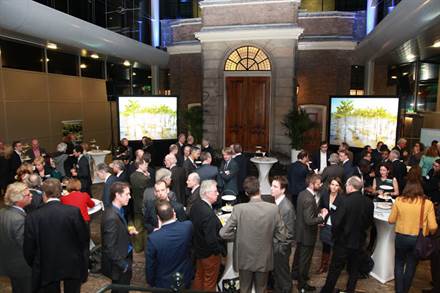
Wetlands International CEO Jane Madgwick set the scene with her remarks on the urgent need for innovative thinking and new partnerships to stimulate positive action in all regions of the world at all scales. Jane noted that future food and water security, mitigating climate change, reducing the risk of disasters and improving human health can only be achieved and sustained if more is invested in wetlands as functioning systems in the landscape – wetlands as natural infrastructure. Read Jane’s remarks:
To achieve these goals, Wetlands International engages in partnerships with governments, businesses and other NGOs to share cross-sectoral expertise and stimulate action that safeguards wetlands for people and nature. Clearly more is needed for this collective effort to have a bigger impact, and this event celebrated the achievements of our existing partnerships and explored opportunities for scaling that up. In a series of featured interviews, Jane and a few of our current partners explored the benefits of collaboration, the business case for investing in wetlands and the needs and opportunities for policy shifts to support this valuable work.
How can wetlands reduce disaster risk?
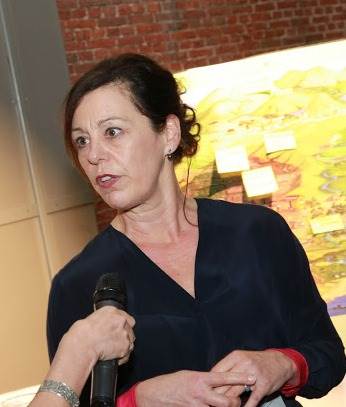
Johanna van Sambeek, Director Strategy, International and Governance Affairs of Netherlands Red Cross, spoke of the value of an integrated approach to disaster risk reduction (DRR) that recognises the importance of managing ecosystems to tackle the root causes of natural hazards like droughts and floods. She highlighted that the degradation of wetlands undermines efforts in the DRR sector and that we need to work together to influence policies in a new way that recognises this linkage. Read more about our partnerships with the humanitarian sector.
What is the business case for nature-based solutions?
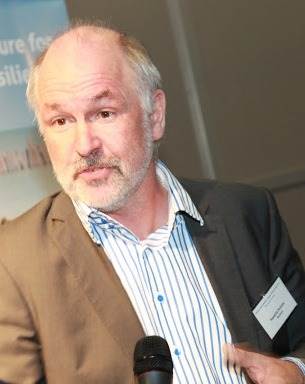
Hendrik Postma, Director of Boskalis Netherlands pointed to the growing need for ecological knowledge to be integrated into engineering solutions. The business case for coastal resilience is that engineering solutions alone are not enough. Sustainable, nature-based solutions are required to meet the needs of the growing numbers of people who are living in the world’s deltas and along its coasts. Read more about our work on mangrove-based coastal defense.
What are climate-smart land use options for high carbon wetlands?
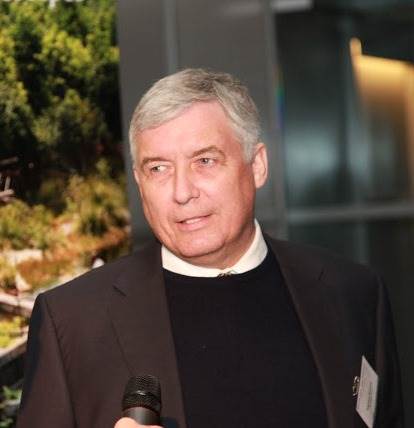
Stephen Rumsey, Chairman of Permian Global vividly outlined the significance of peatlands for global greenhouse gas emissions. As an investment firm dedicated to making a difference on climate change mitigation, Permian recognises our years of leadership in pioneering peatlands science and works with us to protect and restore tropical peatlands. Read more about our work on saving peatlands.
How can energy production and the wise use of wetlands co-exist?
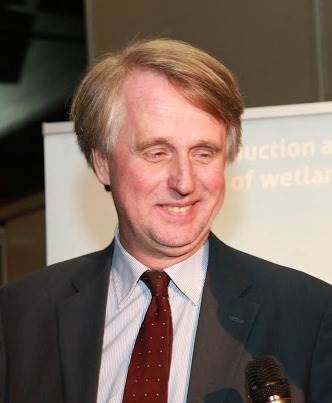
Dick Benschop, President Director of Shell Netherlands, stressed the value of the science and expertise offered by Wetlands International for Shell’s efforts to improve environmental performance. Highlighting collaborative work to conserve Brunei’s peatlands and Wetlands International’s work characterising the different Arctic wetlands and ecosystems in Canada, he noted our contributions to understanding the value of these landscapes for both people and nature.
How can wetlands and water balancing contribute to improve water security?
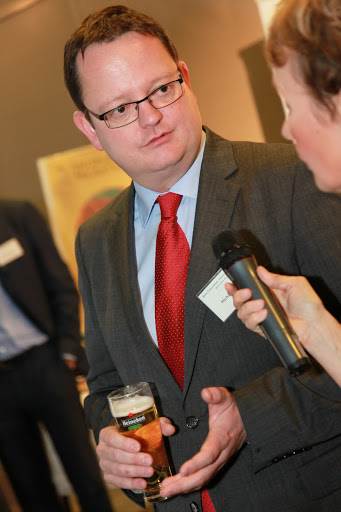
Michael Dickstein, Global Director Sustainable Development at Heineken illustrated the business case for investing in wetlands with a glass of beer – which is 95% water. With growing water scarcity, Heineken recognises the value of working in partnerships in order ensure the water security of its operations. Read more about how we engage with companies.
What is the potential for nature and business collaboration to make a positive difference?
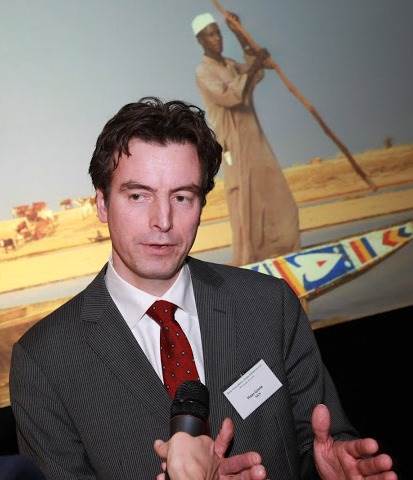
Maas Goote, Executive Director of IUCN National Committee of The Netherlands emphasised the business case for sustainability standards that reduce risk and uncertainty, and that these standards cannot exist without the expertise, insight and knowledge of NGOs. Through our collaboration, we are seeking to protect and restore ecosystems by strengthening sector-wide criteria in commodity chains such as the Roundtable for Sustainable Palm Oil. Read more about our work greening the economy.
Keynote speakers address Blue Challenges, Green Opportunities
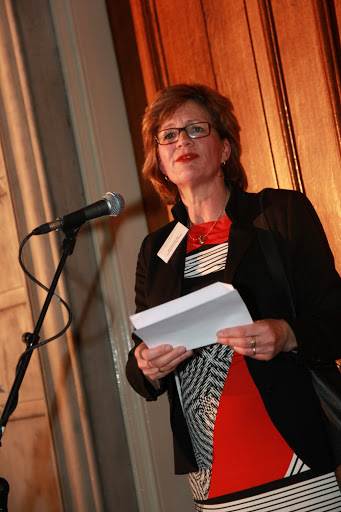
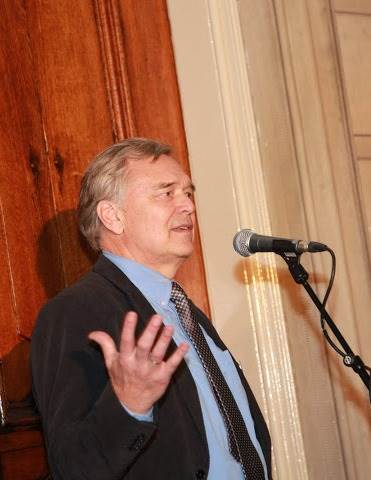
Marion Derckx from the Ministry of Foreign Affairs in The Netherlands spoke of how Wetlands International is a well-respected partner of the Dutch government and the importance of civil society organisations and business in working together for solutions. Karl Falkenberg Director General of DG Environment at the European Commission reflected on the need for a transformational agenda in Europe where issues such as climate, water and wetlands are considered in an integrated manner, instead of in separate silos. He lauded the thinking in the room to address environmental challenges in a holistic manner and underlined the overall need to better understand the socio-economic value of nature.
Wetlands International launches its new logo!
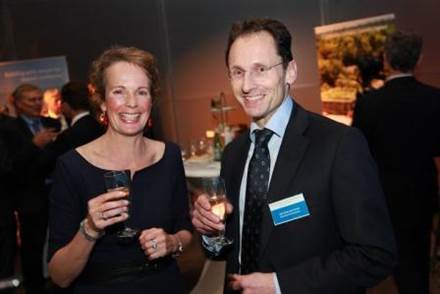
After 20 years with its current logo, we unveiled a brand new one, amidst rapturous applause from participants. As noted by Chairman Jan Ernst de Groot, it was time for our logo to catch up with the work we do. In the last 20 years, we have continued to champion wetland biodiversity, but have also become prominent in the fields of climate, water and local livelihoods. Our new logo and brand promise to safeguard and restore wetlands for people and nature reflect much better who we are and what we do.


